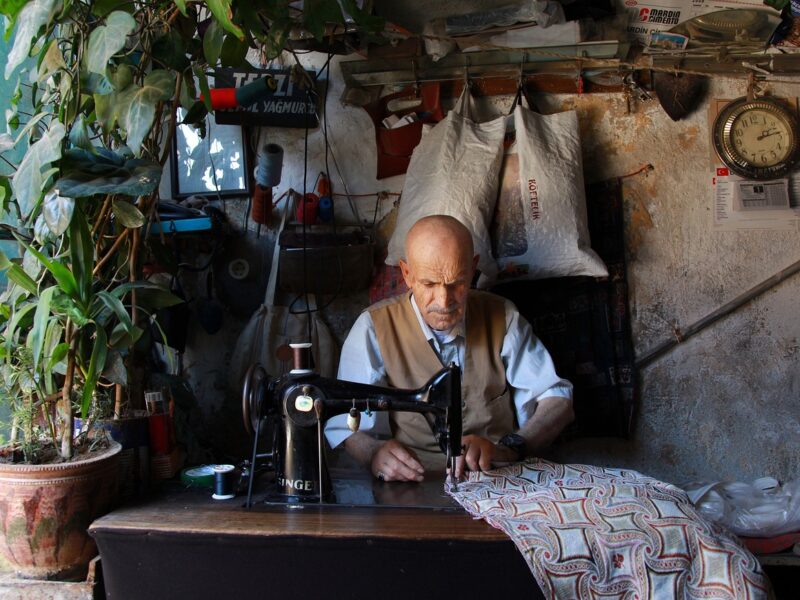Work Permit Requirements for Tailors in the UK: Everything You Need to Know
The tailoring profession, known for its precision, craftsmanship, and cultural significance, is in growing demand across the United Kingdom. As fashion and bespoke clothing industries expand, skilled tailors—especially those with experience in alterations, custom fittings, and traditional tailoring—are increasingly sought after. But what does it take for a foreign tailor to legally work in the UK?
This guide offers a complete breakdown of work permit requirements for tailors in the UK, covering visa types, eligibility criteria, application steps, costs, and frequently asked questions. Whether you’re a master tailor or just starting out, this article will help you understand your pathway to legally working in the UK.
Table of Contents
- Why Tailoring Is in Demand in the UK
- Can Foreigners Work as Tailors in the UK?
- Types of Work Permits Available
- Skilled Worker Visa: Main Route for Tailors
- Eligibility Criteria for Tailors
- Sponsorship Requirement: What Employers Must Do
- How to Apply for a Tailoring Job and Work Visa
- Documents Required for the Visa Application
- Application Timeline and Fees
- Living and Working in the UK as a Tailor
- Challenges and Tips for Foreign Tailors
- FAQs About UK Work Permit for Tailors
- Conclusion
Why Tailoring Is in Demand in the UK
Tailoring is deeply rooted in British culture. The country is home to some of the world’s most iconic tailoring hubs, like Savile Row in London, famous for bespoke suits. The fashion industry thrives in the UK, with consumers increasingly leaning toward custom, high-quality clothing over mass production.
Additionally, as global cultures merge, there’s demand for ethnic tailoring services such as African traditional garments, South Asian lehengas, sherwanis, and Middle Eastern abayas, which immigrants and expats often seek.
Can Foreigners Work as Tailors in the UK?
Yes, foreign nationals can work as tailors in the UK, provided they meet the immigration and visa requirements laid out by the UK Home Office. Tailoring is considered a skilled trade under UK immigration law, meaning that foreign tailors can apply for work through sponsorship-based visas—primarily the Skilled Worker Visa.
Types of Work Permits Available
There are several visa options for those seeking to work in the UK, but for tailors, the following are the most relevant:
- Skilled Worker Visa (Tier 2) – Best suited for foreign professionals with a UK job offer and sponsorship.
- Temporary Worker Visa (T5) – Suitable for short-term or seasonal employment.
- Global Talent Visa – For those with exceptional skill, though rarely used for traditional tailoring.
- Youth Mobility Scheme Visa – For citizens of eligible countries aged 18–30, ideal for gaining short-term experience.
Among these, the Skilled Worker Visa is the primary route for tailors who wish to live and work in the UK long-term.
Skilled Worker Visa: Main Route for Tailors
The Skilled Worker Visa allows foreigners to work in the UK for an approved employer who is a licensed sponsor. This visa category replaced the Tier 2 (General) Visa and includes job roles listed in the UK’s Shortage Occupation List or Skilled Occupations List.
Tailor Job Code
As per the Standard Occupational Classification (SOC) system, tailors fall under:
- SOC Code: 5414 – Tailors and Dressmakers
This code is part of the skilled occupations eligible under the UK visa sponsorship scheme.
Eligibility Criteria for Tailors
To qualify for a Skilled Worker Visa as a tailor, you must meet the following:
- Job Offer – You need a job offer from a UK-based employer licensed to sponsor skilled workers.
- Sponsorship Certificate – Your employer must provide a Certificate of Sponsorship (CoS).
- Salary Threshold – Minimum salary of £26,200 per year or £10.75 per hour (subject to changes).
- English Language – Proficiency in English at B1 level (IELTS or equivalent).
- Skill Level – You must demonstrate relevant tailoring skills and qualifications (formal or informal training may be acceptable).
- Proof of Funds – At least £1,270 available in your bank account for 28 days unless your employer will cover this cost.
Sponsorship Requirement: What Employers Must Do
Your UK employer must be registered as a licensed sponsor with the UK Home Office. They must:
- Assign a Certificate of Sponsorship (CoS) to you.
- Pay the appropriate salary as per visa guidelines.
- Ensure the job matches the duties listed in the occupational code (e.g., stitching, pattern-making, alterations).
- Comply with immigration rules, including record-keeping and reporting.
Employers also pay an Immigration Skills Charge, which varies depending on their company size.
How to Apply for a Tailoring Job and Work Visa
Step 1: Search for Tailoring Jobs in the UK
Start by browsing job platforms like:
- Indeed.co.uk (https://www.indeed.co.uk/)
- Gumtree (https://www.gumtree.com/)
- Reed.co.uk (https://www.reed.co.uk/)
- UK government jobs site (https://findajob.dwp.gov.uk/)
Use search terms like “tailor,” “alterations specialist,” “dressmaker,” and “bespoke tailor.”
Step 2: Apply and Get Sponsorship
Apply to employers who clearly state they can sponsor overseas applicants.
Step 3: Secure a Certificate of Sponsorship
Once hired, your employer will provide a Certificate of Sponsorship with a unique reference number.
Step 4: Apply for the Skilled Worker Visa
Submit your visa application online at the UK Home Office website.
Documents Required for the Visa Application
Here’s a checklist of what you’ll need:
- Valid passport or travel ID
- Certificate of Sponsorship reference number
- Proof of English proficiency (IELTS or equivalent)
- Proof of personal savings (unless exempt)
- Tuberculosis test results (for certain countries)
- Criminal record certificate (for specific roles)
- CV and proof of work experience
- Academic or vocational qualifications (if applicable)
Application Timeline and Fees
- Visa Processing Time: 3–8 weeks (depending on location and document accuracy)
- Visa Application Fee:
- Up to 3 years: £719
- More than 3 years: £1,423
- Immigration Health Surcharge: £624 per year
Always check the official UK visa fees (https://www.gov.uk/skilled-worker-visa) as they can change.
Living and Working in the UK as a Tailor
Tailors in the UK often work in:
- High-end boutiques
- Custom tailoring shops (like those on Savile Row)
- Department stores and retail brands
- Ethnic wear shops in multicultural cities
- Independent alteration businesses
You may work full-time, part-time, or on a contract basis, depending on the employer and location.
Popular cities for tailoring jobs include London, Birmingham, Manchester, and Leicester, where diverse fashion styles are in demand.
Challenges and Tips for Foreign Tailors
Challenges:
- Navigating visa rules and documentation
- Meeting language proficiency standards
- Finding an employer willing to sponsor
- Adjusting to UK work culture and customer expectations
Tips:
- Highlight your unique skills, like ethnic tailoring or bridal alterations
- Network with UK tailoring communities or industry forums
- Consider a short training course in the UK to boost employability
- Keep a portfolio of your work—images, videos, client testimonials
FAQs About UK Work Permit for Tailors
1. Can a tailor apply for UK permanent residency?
Yes, after 5 years on a Skilled Worker Visa, you can apply for Indefinite Leave to Remain (ILR) if you meet all the criteria.
2. Do tailors need formal education?
While formal qualifications help, experience and skills matter more in tailoring. A solid portfolio can be as valuable as a diploma.
3. What English test is accepted for the Skilled Worker Visa?
The IELTS for UKVI is widely accepted. You need at least B1 level in speaking, reading, writing, and listening.
4. Are tailoring jobs on the UK Shortage Occupation List?
As of now, tailoring is not officially on the shortage list, but it is part of the eligible occupations for Skilled Worker Visas.
5. Can I bring my family on a tailoring work visa?
Yes. You can bring dependents, including your spouse/partner and children, under the Skilled Worker Visa route.
Conclusion
The path to becoming a professional tailor in the UK as a foreigner is clear—but it requires preparation, skill, and an understanding of visa processes. With tailoring continuing to thrive in the UK fashion and cultural scene, opportunities are abundant for those who are dedicated and well-prepared.
By following the steps outlined in this guide, you can position yourself for success in one of the world’s most style-conscious countries. Whether you’re dreaming of working in a luxury boutique or opening your own alterations shop, your tailoring career in the UK starts with securing the right work permit.






